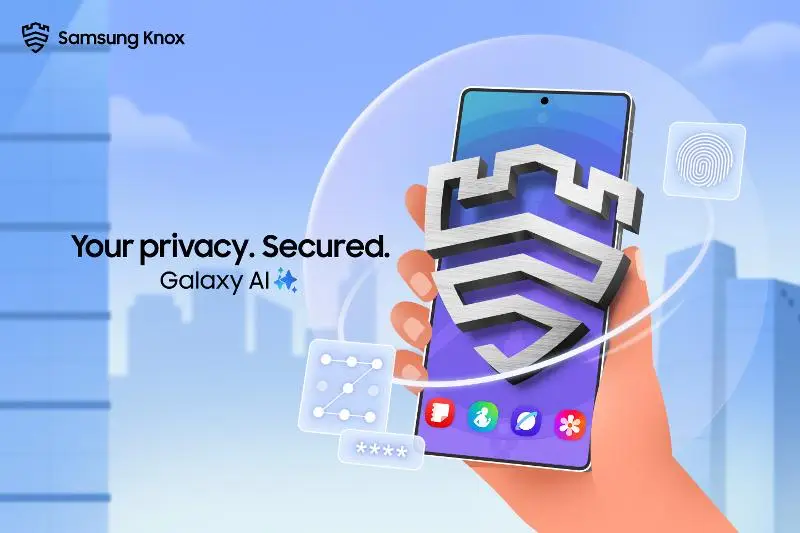The Galaxy Advantage in Privacy-First, AI-Powered Experiences
Galaxy AI is designed to anticipate your needs even before you express them, whether by suggesting changes to your routines or retrieving information at the opportune moment.
Such personalized experiences can be highly beneficial, yet increased knowledge about users raises essential questions about data protection. So, how is your personal data being safeguarded?
Samsung asserts that robust security is foundational to privacy. For this reason, every Galaxy device employs a multi-layered security approach, starting from the chip level. This includes on-device personalization, user-controlled cloud processing, and comprehensive protection through Samsung Knox Matrix.
At the heart of this system lies Samsung Knox Vault, a hardware-based solution specifically for safeguarding your most sensitive data.
Secured at the Hardware Level
Unlike many devices that depend solely on software to secure sensitive data, Galaxy devices take an extra step. Knox Vault is a hardware security solution that forms a protective barrier around your most confidential information. Essentially functioning as a secured compartment within your phone, it features its own processor and memory, isolating sensitive elements such as passwords, PINs, biometrics, and cryptographic keys—data that must remain private. Knox Vault operates automatically in the background, ensuring your data is protected without requiring any activation or management from you.
In the age of AI, where concerns extend beyond traditional cybersecurity issues like malware, people now worry about the potential exposure of personal data, including interactions with AI assistants. As AI is integrated into daily tasks, the scope of data needing protection broadens significantly. For instance, metadata from personal photos not only indicates image details but may also reveal the exact location where it was taken. In this era, information such as home addresses, facial identifiers, and more must be encrypted and safeguarded. Knox Vault helps address these privacy concerns by securely storing personal information in a hardware-isolated environment equipped to thwart both physical tampering and remote breaches.
Personalized AI, Protected at the Core
Knox Vault not only combats current threats but also aids in ensuring privacy as mobile technology becomes more sophisticated. With the growing utility of Galaxy AI—adapting to your habits and personal preferences—Knox Vault is pivotal in preserving the confidentiality of this information. Features such as Now brief deliver tailored summaries based on your behavior, while Modes and Routines create automated actions in response to your activities. These functionalities draw upon a map of personalized data that is encrypted, with Knox Vault safeguarding the access keys.
Galaxy AI prioritizes privacy by performing tasks directly on-device when feasible, which keeps your data secure and prevents it from being stored on external servers. For example, the Audio Eraser feature processes sound locally to remove background noise from videos without relying on cloud services—thereby ensuring your personal data remains private. Similarly, the Call Transcript feature organizes your calls while safeguarding your personal conversations by keeping everything on the device.
Knox Vault is dedicated to guaranteeing that your data remains confidential and secure. As Samsung’s AI ecosystem evolves and integrates AI deeper into user experiences, Knox Vault stands as the trusted security foundation. It is not merely a security feature; it symbolizes Galaxy’s commitment to ensuring that regardless of advancements in technology or AI’s evolution, your privacy remains intact.
1 Modes and Routines require a Samsung Account login. Customized content and recommendations require permissions to access data such as location and app usage.
2 Results may vary depending on audio quality. Samsung Account login is necessary. Certain sound types can be detected, and accuracy may differ based on conditions and audio sources.
3 The Call Transcript feature requires network connectivity to function. Availability may differ based on geography or language.



